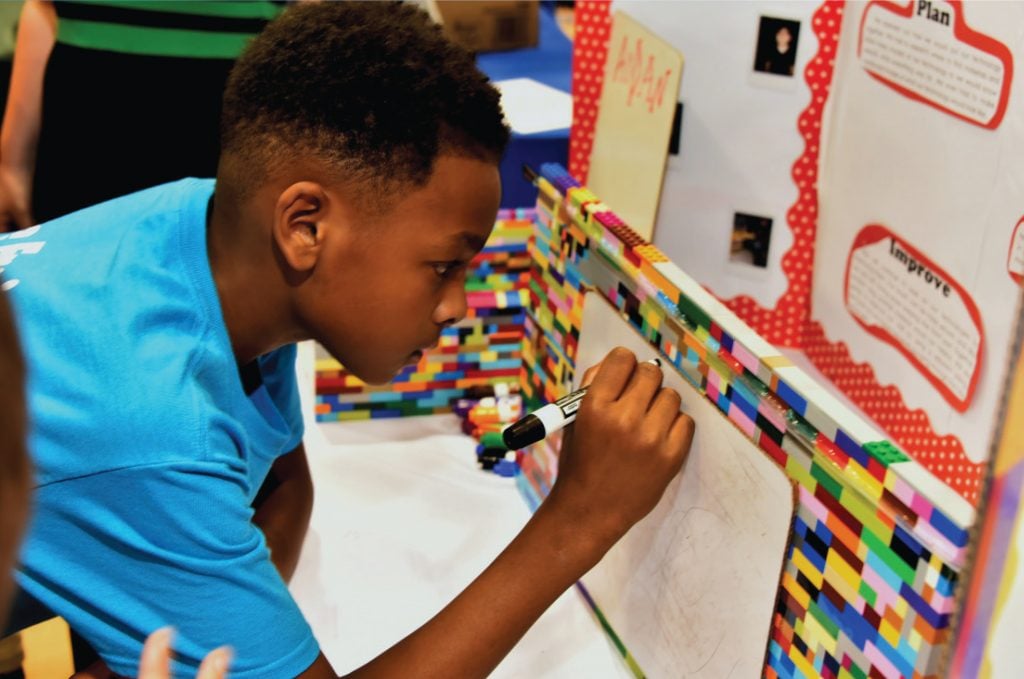
In collaboration with Johns Hopkins University, Baltimore City Public Schools has adopted a program to strengthen science, technology, engineering, and math (STEM) instruction in the district’s elementary schools.
The partnership marks a significant milestone for SABES—STEM Achievement in Baltimore Elementary Schools—which was designed to prepare students for recently introduced Next Generation Science Standards and bolster teachers’ command of the subject matter. With a $7.4 million grant from the National Science Foundation, SABES was introduced in 2013 as a pilot program in nine elementary schools to bring more instruction in STEM.
“The fact that the district has recognized the success of our SABES schools and invested in rolling this out across the city is a step forward for our children’s futures,” says Whiting School Vice Dean of Undergraduate Education Michael Falk, professor of materials science and engineering and the principal investigator in the SABES project. “Getting kids to work hands-on with science and engineering is essential for instilling the wonder with our world that helps kindle a lifelong pursuit of careers in these directions.”
Research on SABES suggests that the effort is boosting student interest in science and engineering. A survey administered by the Johns Hopkins School of Education showed that at the end of the 2014–15 school year, the number of students in SABES who wanted to be an engineer was 27 percent higher than in non-SABES schools.




